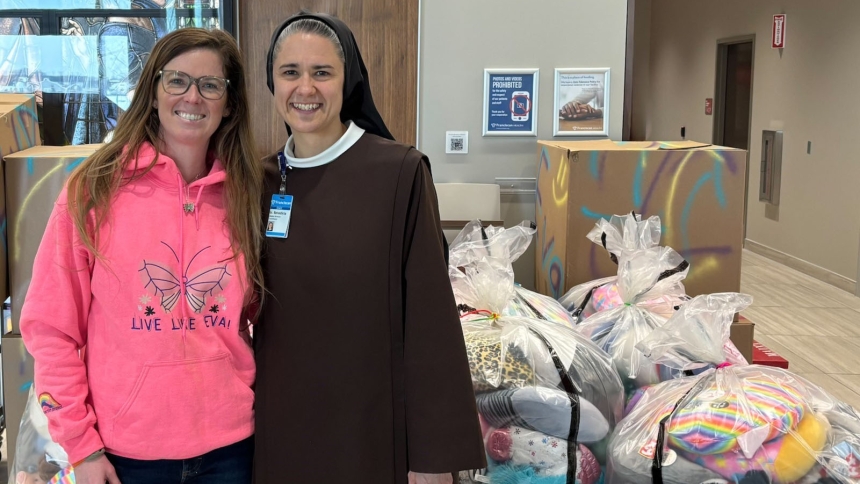
Pope Francis has called for a Holy Year dedicated to Mercy, beginning this December 8, 2015, the 50th anniversary of the closing of Vatican Council II and ending on the feast of Christ the King, November 20, 2016. In his letter instituting this special time of grace, the Holy Father reminds us that Jesus is the face of God’s merciful love, the incarnation of salvation and forgiveness which God offers to every human person. He calls all Catholics to enter this Holy Year, eager to practice the corporal and spiritual works of mercy, to experience the tender presence of God through the sacraments, especially the sacrament of reconciliation and to reach out to the poor and marginalized with generosity and love. As articulated in the remarkable parables of the Prodigal Son and the Good Shepherd and lived out in Jesus’ generous and shocking forgiveness and inclusion of the sinful and rejected, the mercy of God is at the very heart of the Christian faith.
Here in the Diocese of Gary, I ardently hope that every baptized Catholic will embrace this special Year of Mercy with generosity and passion. After discussions with both the Priests’ Council and the diocesan Pastoral Council, I suggest that we focus on the central themes that Pope Francis has laid out for us: living out both the mercy and justice of the Father by practicing the corporal and spiritual works of mercy, continuing and even extending our service and outreach to the poor, abandoned, sick and elderly of our diocese, addressing the systemic issues which are the root causes of poverty and implementing some new initiatives, guided, formed and inspired by the Indiana Bishops’ Pastoral Letter on poverty.
In these ways, we ever increasingly become an extension of the merciful Christ in this world. I commend and thank the many groups, organizations and individuals in our diocese who heroically live out the Gospel of Mercy to the poor and suffering. May your efforts ever increase and be a blessing.
The pope’s other emphasis is the sacrament of reconciliation, our encounter with the forgiveness and love of God, won for us through the Paschal Mystery of Jesus’ death and resurrection. On the very night of Easter, Jesus empowers the apostles to proclaim the forgiveness of sins to the people. It’s almost as if Jesus can’t wait to get back from the dead to share the fruits of his victory and to extend the mercy of the Father.
When we acknowledge our sinfulness and weakness, we are free to encounter the healing and merciful love of Jesus through the sacraments. Baptism claims us for God, drawing us into a living relationship with the Blessed Trinity and the Church. Through reconciliation, we rediscover our baptismal innocence through forgiveness. The Eucharist, which is reconciling as well, is the culmination point of our encounter with the mercy of the crucified and risen Christ.
Heeding the pope’s emphasis on the sacrament of reconciliation, I am asking that every deanery of the diocese designate one or several parishes as places where the sacrament of reconciliation will be offered more frequently with the needed help of the deanery priests assisting in this important effort. The pope has also called for a 24 hour period of prayer and reconciliation to be held in churches on the Friday and Saturday (March 4-5, 2016) prior to the Fourth Sunday of Lent next March. Details on how we will offer this opportunity here in our diocese will be forthcoming. I encourage everyone to seize the moment during this special year to experience the forgiveness of the Lord in the sacrament with greater zeal and frequency and to encourage others to return to the sacraments as the source of grace and mercy.
Other significant ways we can celebrate this Holy Year include reconciling broken relationships, reaching out and forgiving those who have hurt us, even as we ask for forgiveness, praying the Chaplet of Mercy, studying and reflecting on Jesus’ parables which are illustrative of God’s tender love, praying the rosary and deepening our relationship with the Blessed Virgin, reading Pope Francis’ letter, Misericordiae Vultus,announcing this special year and Pope John Paul II’s encyclical, Dives in Misericordia, a beautiful reflection on the mercy of God. Any way that we can share the joy, love and peace of Christ with others becomes a beautiful observance of this sacred time.
This Holy Year calls us all to recognize how we need mercy ourselves. I had great conversations with our priests regarding this point. Sometimes in our ministry to others, we forget that we must allow the Lord and the People of God to witness the divine love to us and minister to us, as we all approach the throne of grace and mercy. I pray that our pastoral leaders, both lay and clergy, find spiritual refreshment in these graced months.
I invite everyone to join me for a special Eucharist on Sunday, Dec. 20 at 2 p.m. at our Cathedral of the Holy Angels as we open the Holy Door for this Year of Mercy. This door symbolizes Christ as the sacred portal through which we enter into the fullness of the Father’s merciful heart. I am asking every parish to send 3-5 representatives to this Mass, so that it is truly a diocesan celebration.
Please join me in both prayer and action as we enter into this extraordinary time of spiritual possibility, grace and mercy, together with the whole Church. May we both experience and extend the astonishing mercy of God this year as we have never done before.
With prayers, peace and blessing,
+ Donald J. Hying


